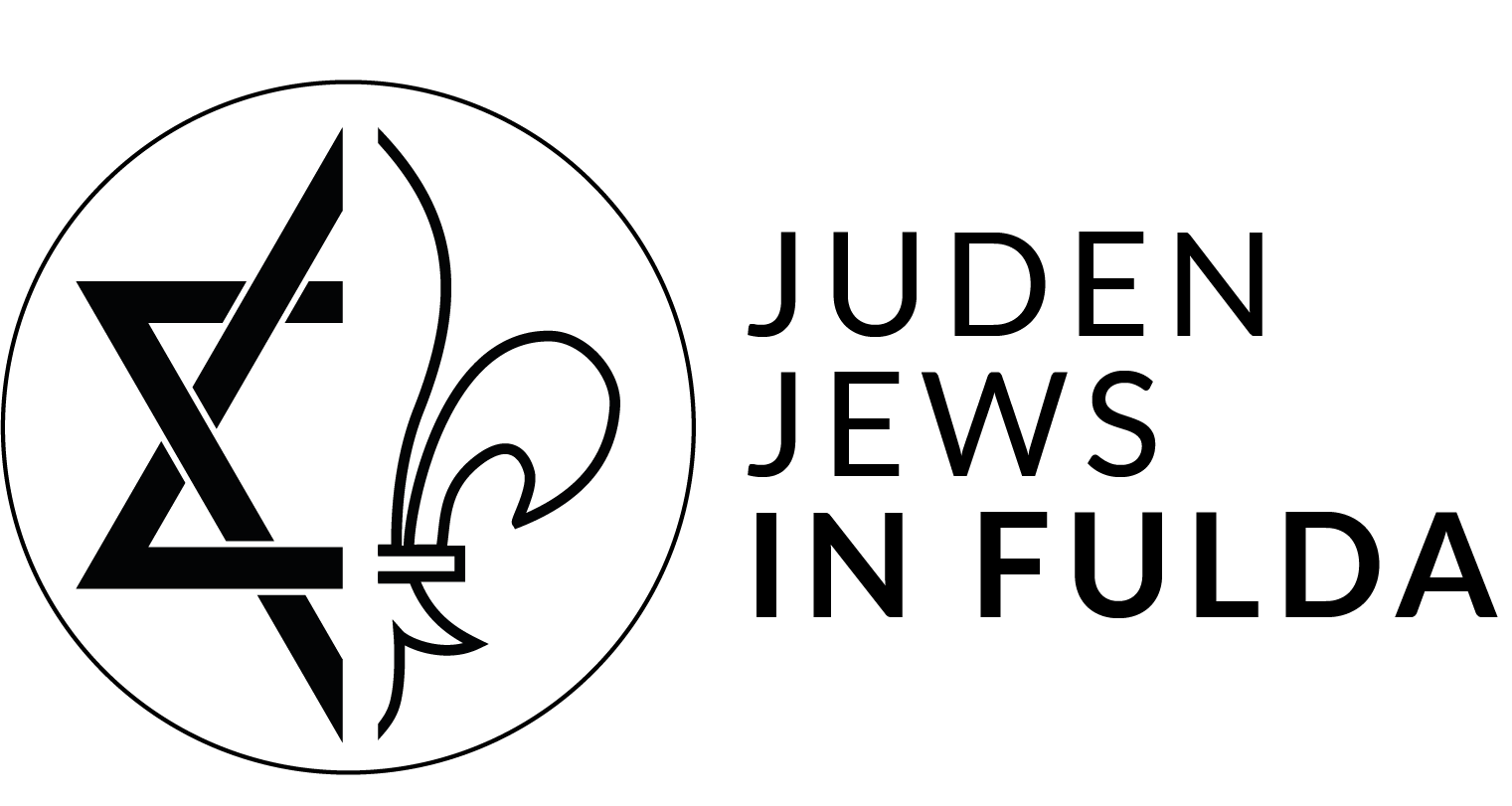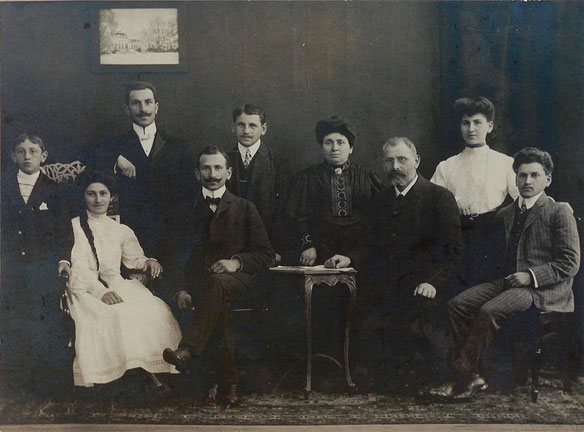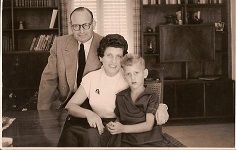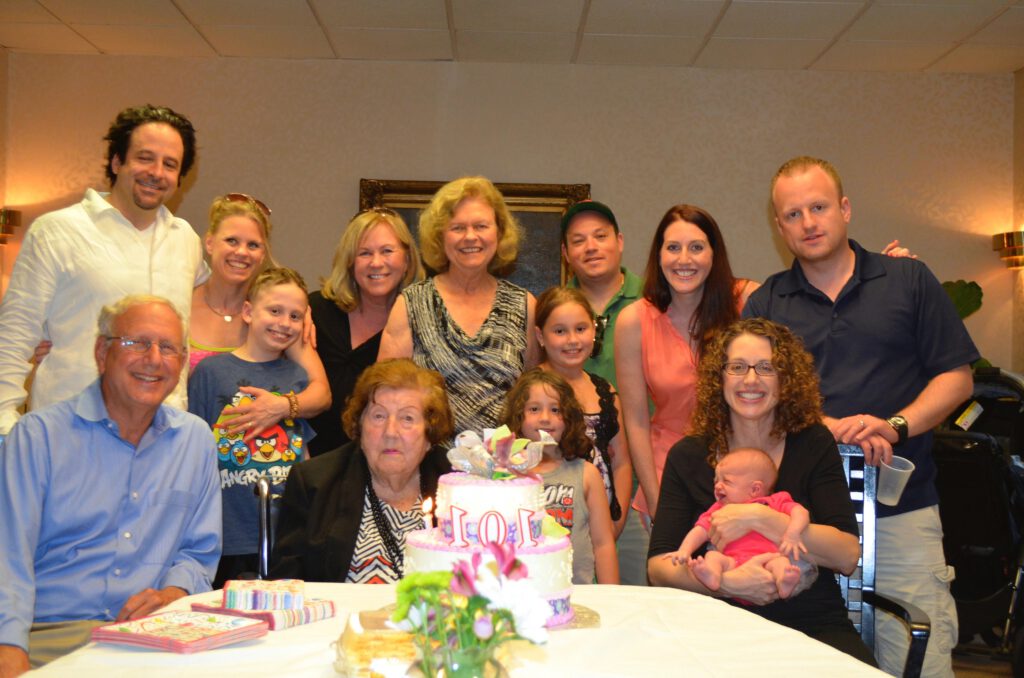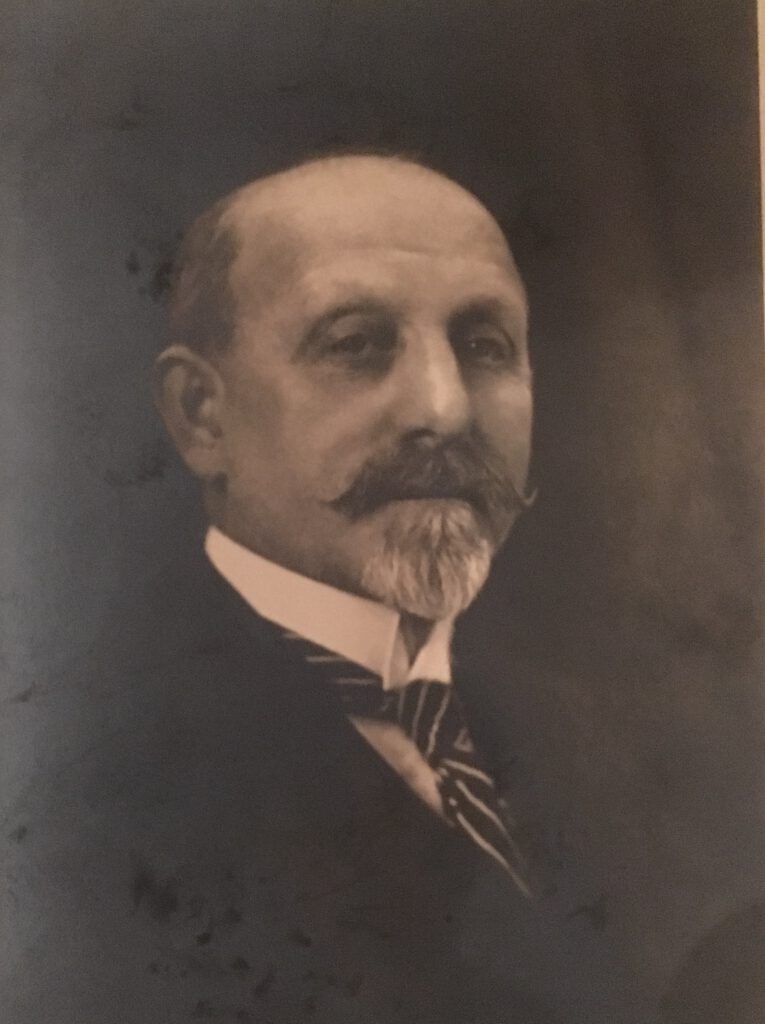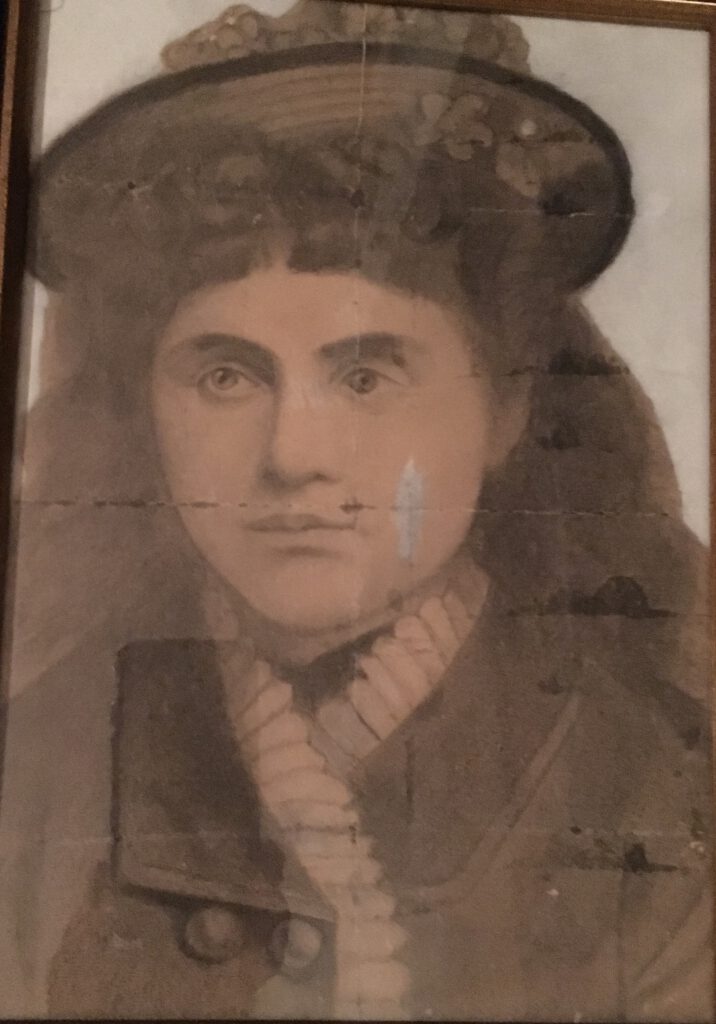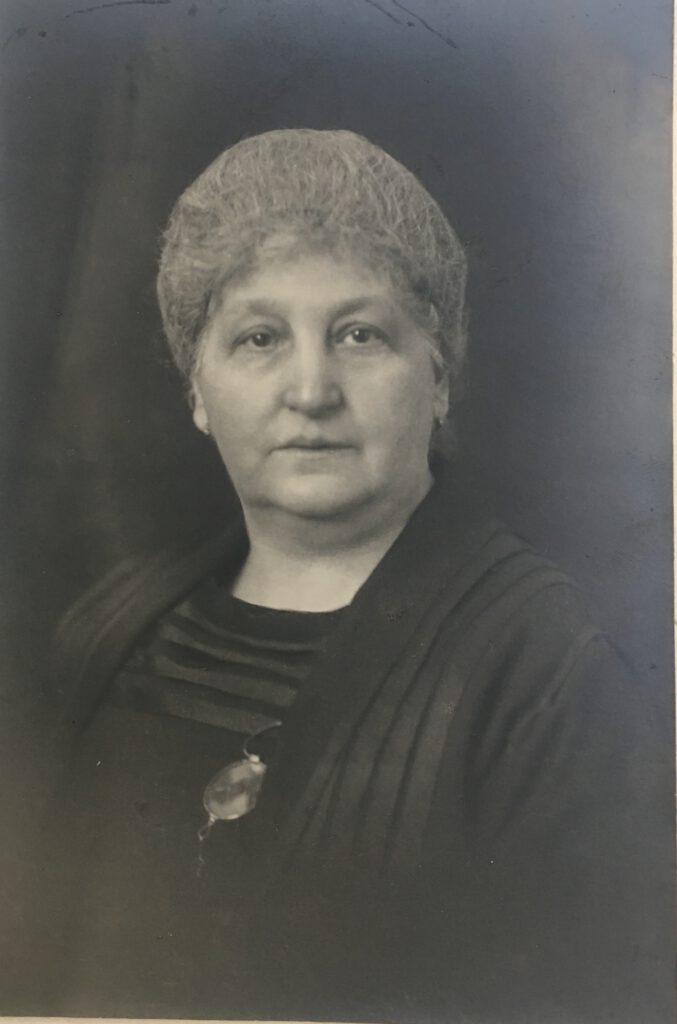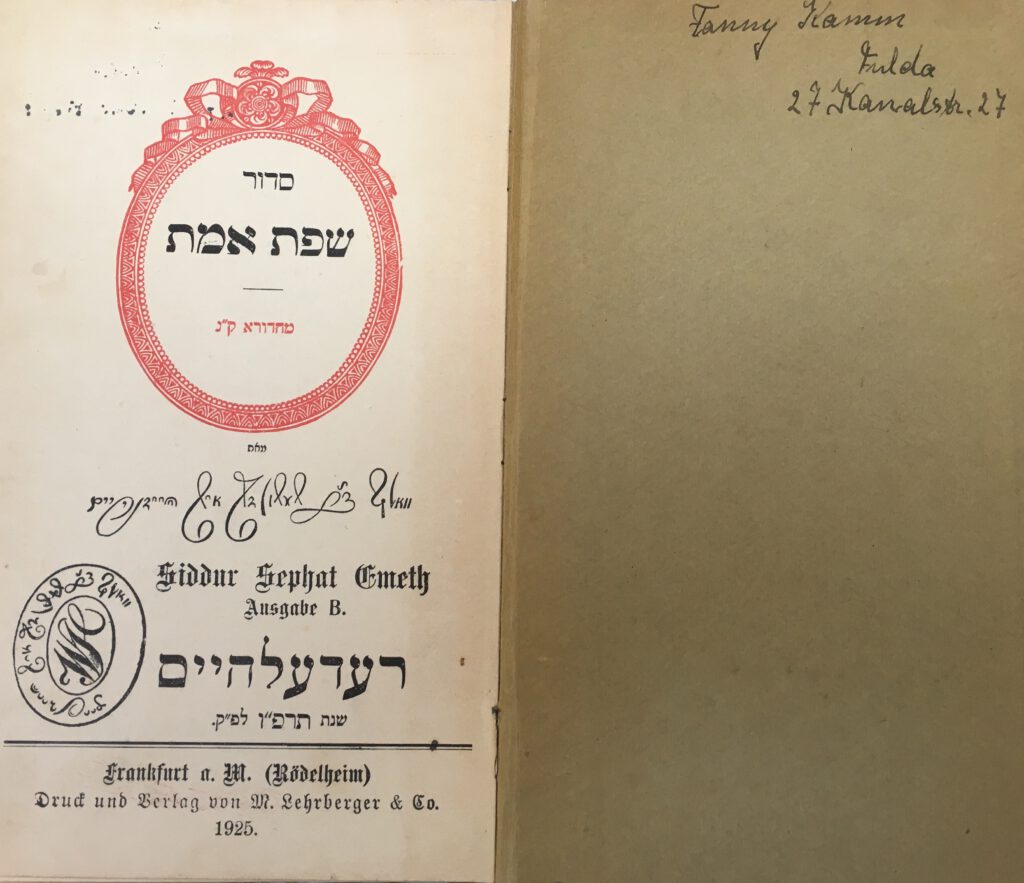Family Origin
The family Meier Kamm came from Hettenhausen in the Rhoen and moved with their six children in 1896 to Fulda.
Meier Kamm was born August 24, 1851 in Hettenhausen/Gersfeld and his wife Jettchen Kamm, née Wertheim was born April 20, 1851 in Wehrda.
Fanny (Rachel) Bensinger, b. Kamm – Biography
Interview by Elena Varntoumian with Ethan Bensinger (son) in May 2017
Childhood
Rachel Bensinger was born on July 16, 1912 in Fulda. Her birthname was Fanny Kamm. Upon immigrating to Israel, she took the Hebrew name Rachel as her first name, and Fanny became her middle name. She was named Fanny after a so-called “Aunt”, Fanny von Manstein.
The von Mansteins had a lifelong relationship with Rachel’s mother, Tekla Sichel as well as with her, often inviting them to their large home in Würzburg. As a teenager, Rachel and Fanny von Manstein also often corresponded. Fanny von Manstein and her husband Ernst von Manstein converted to Judaism and both were very learned in their new-found religion.
Rachel grew up in what is now considered the old town of Fulda. She lived with her parents at #27 Kanalstrasse. She was a member of two large Jewish families in Fulda—her mother, Tekla Sichel, was born in Fulda on May 18, 1886. She was one of 12 children, and her father, Willy Kamm, was born in Hettenhausen on December 3, 1884. He also had 10 brothers and sisters. In 1896, the Kamm family moved from Hettenhausen to #7 Mittelstrasse in Fulda. Her maternal grandparents had a textile/ clothing store in Fulda and lived over the store on Karlstrasse.
Rachel fondly remembers her grandfather Jacob Sichel hosting the families for the Passover meal—the Seder. She also recalls bringing her grandparents to the ship in Bremen when they sailed to the United States in 1934 to visit some of their children who had emigrated from Fulda in the 1920s. Interestingly, her grandparents returned to Germany saying that people in America work too hard and don’t enjoy life. They both died in Fulda before the war and are buried in the Jewish cemetery.
Tekla was a homemaker, while Willy sold agricultural machinery. Rachel was proud that his business provided her father with one of the first automobiles in Fulda, but she was not allowed to ride in the car.
Though she attended the synagogue and celebrated the Jewish holidays, religion was unimportant to her father Willy. Rachel said that Willy never stepped into a synagogue in Fulda, he was more interested in playing the card game Skat at the local café with his Christian friends.
This too is interesting as Willy’s brother Isaak was an Orthodox Jew who regularly attended the synagogue and had a Kosher butcher shop in Fulda.
Rachel had also one brother, Lothar Kamm. She recalls that Lothar was not interested in studying and would prefer to ride his bicycle around Fulda and spend time with his girlfriend. Besides her brother, Rachel had a wonderful relationship with two of her cousins: Dr. Bubi Kamm, who like his father Isaak was Orthodox, and Trudi Kamm, whom Rachel often visited in Hannover. All three cousins remained close after immigrating to Israel.
She also grew up with a large old parrot in the Kamm family home.
Rachel recalls that as a pretty young girl with blond hair, she was asked to participate in the religious Wallfahrten procession. Because she attended a Christian school as a young girl in Fulda, the nuns may not have distinguished between Jewish and Christian children participating in this ritual, or perhaps did not know that she was Jewish.
When she was 18 years of age, Rachel belonged to the “Israelitischen Frauenverein” in Fulda and participated in their Wohltätigkeitsfest in January 1930. She and two of her best friends, Trude Birk and Lotte Nussbaum, presented scenes from the biblical story “Jacobs dream”.
Rachel also proudly identified with the concept of Zionism—the establishment of a Jewish homeland in Palestine. She was an active member of the Blau-Weiss youth group in Fulda, which advocated immigration to Palestine. She recalls having meetings at friends’ homes to discuss political events and studying the teachings of Theodore Herzl (the father of Zionism) who was the author of the book “Altneuland”.
In time, Rachel began to feel uncomfortable as a young Jewish person living in Fulda.
She recalls her parents’ next-door neighbors saying that “we don’t speak to Jews”, and hearing the expression “Judenrein und Juden raus.”
She became convinced over time that she had no future in Germany and that she would move to Palestine as soon as she could. Even after Hitler’s rise to power, her father Willy said that moving from Germany is crazy talk. Hitler is a political phenomenon whose movement would blow over in 6 months. She was unconvinced.
Rachel wanted to be a Chiropodist when she grew up. In 1933, she studied foot care at the Lehrinstitut Für Fusspflege in Berlin. She also received practical training from Dr. Scholl in Stuttgart and managed a store for them there and in Bremen.
Adulthood
Rachel felt very good about her choice of profession because her employment at Dr. Scholl in Germany created an opportunity for her to realize her dream—to immigrate to Palestine to fight for the establishment there of a homeland for the Jewish people. While working for Dr. Scholl in Bremen Rachel learned that a Dr. Rosenthal was interested in expanding his Dr. Scholl franchise in Jerusalem from one to two stores.
In 1935, she was appointed manager of Dr. Rosenthal’s second store in Jerusalem at a salary of six pounds per month plus a commission of 5% on the store’s sales. Jerusalem was part of the British Mandate over Palestine and a decision was reached with Dr. Rosenthal that she would
enter the country as a tourist to await the approval of a work permit. Excitedly, she said good-bye to her parents in Fulda—who continued to think that she was foolish to undertake this move—and boarded a ship in Brindisi, Italy for Palestine.
On board the boat, Rachel met another German passenger, Ernst Bensinger, who was returning to Palestine after a short vacation abroad. Ernst had immigrated to Palestine the previous year and had been working together with his father in his textile business in Tel-Aviv. After a short courtship, Rachel and Ernst were married in 1936 in a small ceremony at the home of Ernst’s parents in Tel-Aviv.
Two, years later, their first son, Gad was born. Gad is a biblical name, one of the twelve tribes of Jacob. In 1949, Rachel and Ernst had their second son, Eytan. After the War of Independence in 1948, Eytan became a popular name in Israel, which denotes strength. Eytan was born in Tel-Aviv in 1949.
Rachel often recalled how happy and excited she was when Israel declared its independence. She joined in dancing in the streets of Tel-Aviv and participated in parades and other festivities. Finally, her lifelong dream of achieving a state for the Jewish people had become a reality. And, she also had her entire immediate family around her. Her parents, Willy and Tekla, had immigrated to Palestine in November 1938, settling in a small apartment in Tel-Aviv.
The family had a happy life in Palestine/Israel. In the early 1940s, Rachel and Ernst built a beautiful home in Holon, a suburb of Tel-Aviv. The textile business with Ernst’s father continued to prosper and he and Rachel often travelled by car to Beirut, Damascus and Amman selling merchandise to Arab customers. They would also often travel to Europe and would include a stop in Baden-Baden on some of their trips.
But in 1955, a decision was reached to leave Israel for Ernst’s new job opportunity in the United States. Rachel, as a committed Zionist, was very unhappy about this decision. To her dying day, she loved Israel, and emotionally regretted the move to America.
The family first lived in the Washington Heights neighborhood of New York City, and in 1958 moved to Chicago. In 1968, Ernst died, presenting Rachel with new challenges. But, she picked herself up “by her bootstraps”, took several courses in the new field of occupational therapy, and began to work in several nursing homes in the Chicago area.
For the next 25 years, she enjoyed her interactions with the elderly and utilizing her talents to create colorful arts and crafts projects with them. She had an active social life in Chicago. She dated, and for a period of time lived with a partner. She enjoyed attending the symphony, the opera and travelled the world widely with her friends. She corresponded with her parents in Israel weekly, and travelled there to visit them on a yearly basis.
Rachel was always very proud of her accomplishments as a young woman; moving to Israel by herself, managing the Dr. Scholl store in Jerusalem at the age of 23 and her commitment to the establishment of the State of Israel. Her enduring philosophy was that one can accomplish anything in life if one puts one’s mind to it and works hard to get there. She did just that.
Even though Rachel yearned for her life in Israel, she recognized that America provided her family with unique opportunities for happiness and success. She was especially proud of her professor son Gad and her lawyer son Eytan, as well as her beautiful grandchildren and great-grandchildren. At the age of 90 she moved into the Self-help Home for the Aged, where she lived contently until her passing at the age of 102 in 2014.
Many thanks to the family of Ethan Bensinger for providing pictures and documents.
